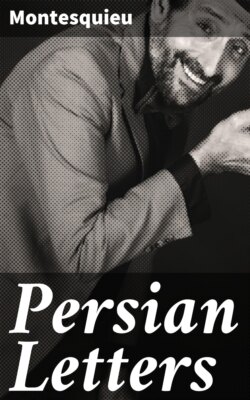Читать книгу Persian Letters - Montesquieu - Страница 5
На сайте Литреса книга снята с продажи.
II
ОглавлениеTable of Contents
Like Montaigne, Montesquieu was a Gascon. His father, Jacques de Secondat, married Marie-Françoise de Penel, the desendant of an English family which had remained in France after the English rule had ceased there. She was an only child, and her husband received with her the title and barony of La Brède, an estate in Gascony, with a fantastic old Gothic donjon built in the thirteenth century. Montesquieu was the second of six children. The date of his birth is not known, but he was baptized on the 18th of January, 1689. His godfather, like the godfathers of Montaigne in 1553, of the lord of Beauvais in 1644, and of the Comte de Buffon in 1742, was a beggar belonging to the district, chosen “in order that his godchild might remember all his life that the poor are his brothers.” He was christened Charles-Louis, and bore, according to a curious custom of the time, the surname of De la Brède, the patronymic, De Secondat, being reserved for the head of the house.
His nurse was a miller’s wife, and the first three years of his life were spent with her. Most of those who have written of Montesquieu have attributed his constant use of the Gascon accent, and of certain idioms and solecisms, to these three years. Is it likely, if he had not heard the Gascon accent in his father’s household, and probably from his father’s lips, that the effect of his lisping in a patois in his earliest infancy would have remained with him all his life? If, however, he heard nothing in his father’s house but the best “French of Paris,” his close and lasting friendship with his foster-brother, Jean Demarennes, is a sufficient cause for the perpetuation of his Gasconisms. But the point is of small moment.
Montesquieu’s mother died when he was seven years old, and four years after, in 1700, he was sent to the college of the Oratorian Fathers at Juilly, near Meaux, in the department of Seine-et-Marne. There he remained till 1711. He was docile and diligent, and the solid foundation laid in Juilly enabled him to become the best informed writer of his time in France. In the year in which he left Juilly he wrote his first non-scholastic piece – the first, at least, of which we known anything. It was a refutation, in the form of a letter, of the doctrine of the eternal damnation of idolaters: the substance of it he afterwards incorporated in the “Persian Letters.”1
